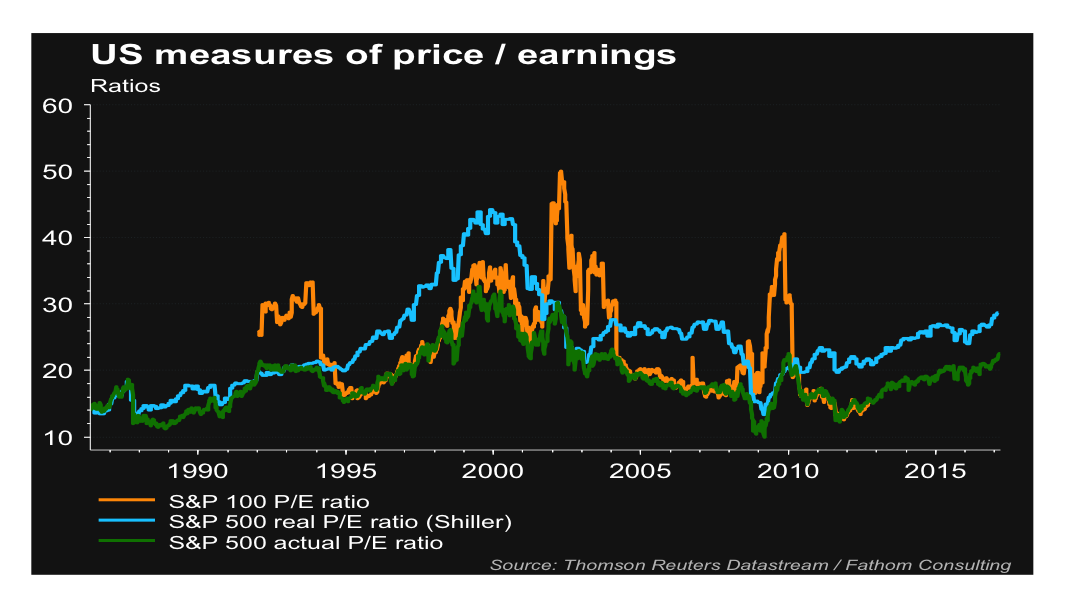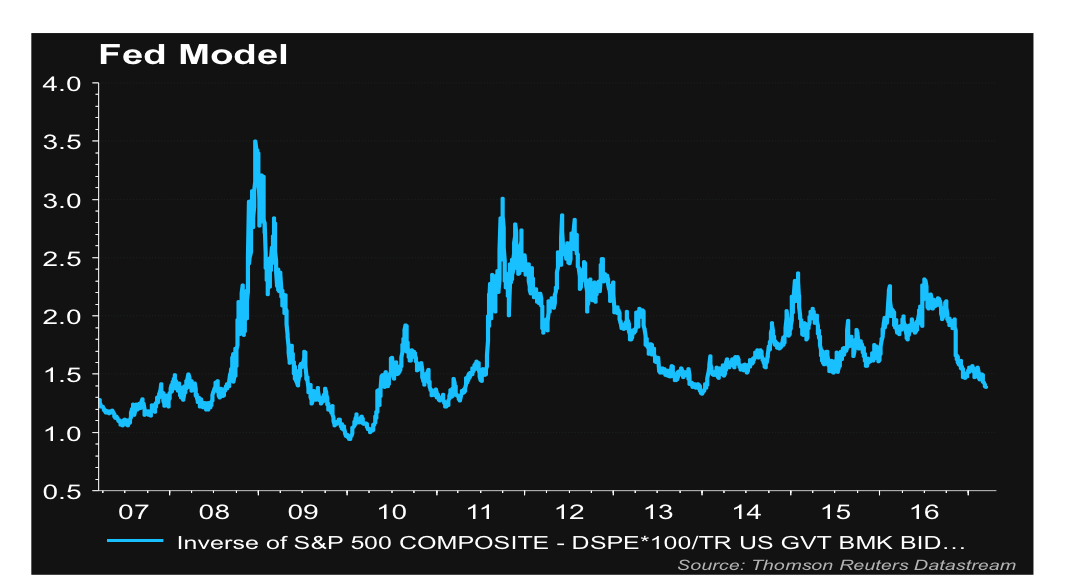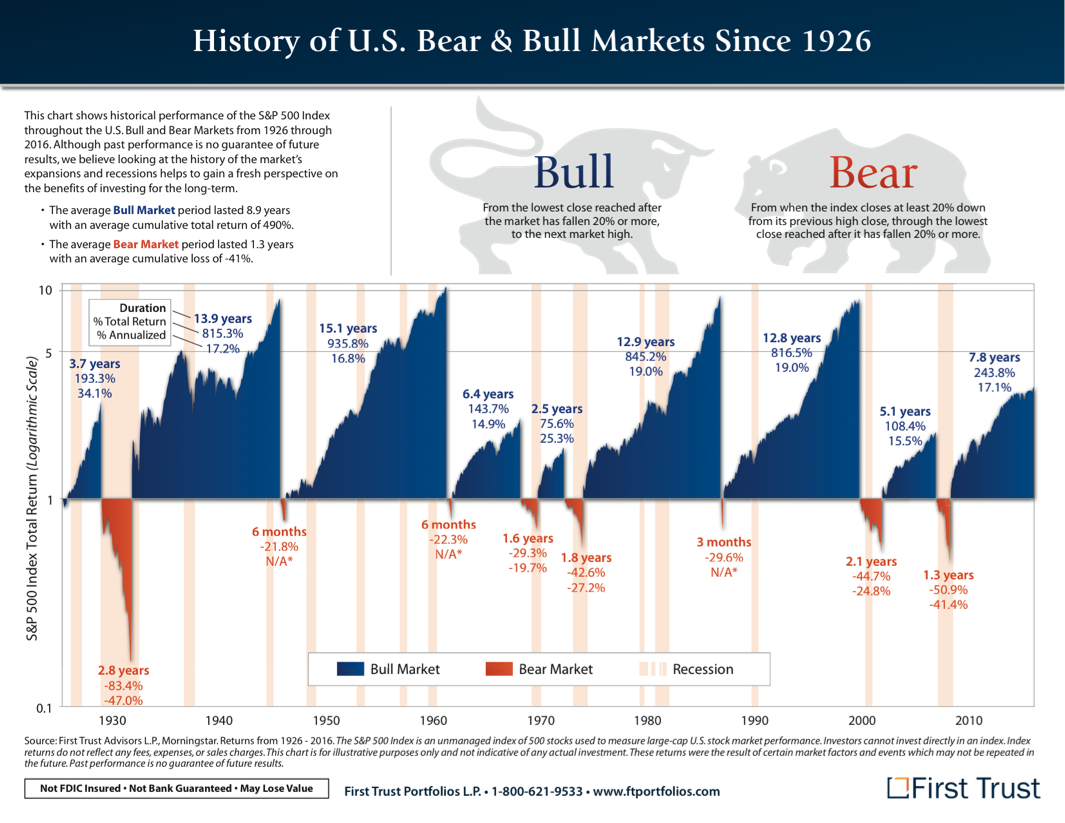With our first newborn baby joining the family on March 11, I have had a week or two where I was detached from computers and phones. The computers and phones were quickly replaced with a baby in the arms or diapers held at the ready. To pass time between naps and cries, we would often have financial news on the TV in the background just for ambience while allowing me to stay up to date on what’s happening in the markets in a more passive sense. But I found when I had a chance to really hone in on what was being said on the TV, a certain kind of commentary continually popped up that started to bother me and it surrounds the issue of market valuations. Essentially, commentators would often say markets are overvalued and due for a pullback, but you should own stocks regardless. To be fair, I understand what is being alluded to here and I think the ‘There is no alternative (TINA)’ thesis really sums it up. Further, we would tend to agree that in almost all instances, investors should own stocks for the long-term as no one can pick tops and bottoms (or both) accurately. However, the long-term performance of equities is rarely the reason given as to why it may be ok to own equities in an overvalued market, and this is what was grinding my gears.
The valuation paradox
First, if the consensus is that markets are overvalued and everyone agrees on it, yet the next investor is willing to buy the market at the current level, it is indeed not overvalued and quite possibly fairly valued. So when someone says that the market is overvalued but then says you should still own stocks, there is an immediate contradiction. Maybe they are at higher valuations than history, but maybe the current environment justifies that valuation. If everyone agrees that markets are overpriced yet everyone is willing to own overpriced stocks, one can only assume that maybe they actually are not that expensive. So continuing to talk about the overvaluation of the market and not digging under the surface as to why this is, or is not, justified is of little value at this stage of things. Saying that stocks should still be owned seems to go against the idea that they are ‘clearly’ overvalued. I think a big part of this is also the use of sweeping generalizations when it comes to valuations. People often look at a stock or market and apply a rule of thumb trading multiple to compare a stock or market to. So if a stock is trading above a 15X P/E multiple, its overvalued. It’s an easy mental shortcut and while not necessarily bad, using it blindly without considering historical and current context is dangerous.
Intended or not, it’s a hedge
I don’t think this is really intended by most, but the reality is that saying stocks are overvalued but you should still own stocks is a classic hedge. If markets go down, ‘we warned you’ if they go up ‘we told you so’. This type of comment is effectively no help to investors aside from likely making them even more nervous about markets and as mentioned above it is a bit of a contradiction.
Not IF markets are overvalued, but by HOW MUCH
For this conversation to become constructive once again, we think it needs to move from the absolute comment that markets are under or overvalued to how under or overvalued the markets are. Looking historically without any context, yes, it is very hard to argue that stocks are cheap by many or any standards. It is worth noting, that this has been the argument for almost the last 10 years as markets have continued their upward trajectory. In the current market though, with a lack of other options for investors and a need for respectable returns, the question really does turn to how overvalued markets are and if someone is willing to assume that downside risk. If markets are only 10% overvalued but an investor can still garner a 3% yield while having potential for a 7% average return over a five-year period, many investors could be more than willing to assume that valuation risk. If markets are looking like a bubble with 50% downside, maybe that’s a different story. We wanted to look at three quick charts to help examine the valuation question.

Nothing earth shattering here but a point to consider is that while the recent strength in prices does look like it is getting higher, I am not sure one can view it as an unhealthy or frothy rise in valuations. It is also one that could largely work itself out over a year’s time through earnings growth or stagnant performance (opposed to a market crash).

The FED model does not get a whole lot of respect in today’s markets but we still like it as a simple look at attractiveness of the two primary asset classes (fixed income and equities). Essentially, the lower the line goes, the more attractive fixed income becomes relative to equity. Of course, if fixed income is essentially a non-starter for investors due to low real return expectations on the assets and if equities are indeed the only alternative, the line could go even lower and may support the idea that fixed income investors are being forced into equities whether they like it or not. This reality would likely remain until interest rates get back to a reasonable level.

Earnings yield is just the inverse of the P/E ratio and essentially tells an investor what kind of fundamental return they are getting on the price paid for a business. So if you buy a whole business for $10 and get annual earnings of $1, your yield or return is 10%. This may not be borne out any given year, but could be a reasonable benchmark return going forward. This chart is interesting for two reasons. The first is that, it is difficult to look at the chart and get overly concerned with market valuations at least in terms of pullbacks above and beyond 10%. Much like other charts, it does indicate some overvaluation but it is hard to call it frothy or unsustainable. It also helps provide some context when considering interest rates and real returns. A ~5% earnings yield in a low interest rate and low inflation environment is not horrible on real terms. If inflation is 1% and expected returns are 5%, the investors get a real return of 4%. If you go back to when inflation was 3% and expected returns were closer to 7%, you still get to 4% in real terms when doing a back of the envelope calculation here. So while they could be ‘overvalued’, markets could also very well continue to offer appropriate returns investors need to have their goals met.
This Bull May Have Stamina

This chart from First Trust is great and probably deserves its own write-up but there a few high level points to key in on. First is that even if a market is overvalued, it could remain overvalued and continue to run quite a bit further. From a probability standpoint, would you rather have exposure to the potential of an 800% bull market return or risk that return to protect oneself from a 40% decline that lasts a year or two. Even if we assume a 75% chance of a 40% decline and a 25% chance of a 100% return (which overall would be quite conservative looking at the chart), the weighted loss here would only be 5%. To say this differently, even if the bull market is in the late innings, the risk/return tradeoff of being long equities are likely far greater. The other noteworthy point is that bear markets are far shorter and often less extreme than bull markets. Numbers favour long investors in that they can experience exponential returns.
Calling a market cheap or expensive is a simplified approach to a complex question that also requires a look at what is happening today compared to what was happening ‘yesterday’ to determine if those valuations are justified. This is why we far prefer to simply find strong, sustainable companies that will continue to deliver results over the long-term, regardless of where a market is at. While using a bottom up approach helps shelter an investor from some of the shorter-term macro concerns, having a pulse on valuations is still a worthwhile practice. In this environment however, blanket statements saying markets are over valued do not offer a whole lot of help to investors. Sign up for the blog below to get our next update outlining a few reasons why an overvalued market may actually be justified.
See our thoughts on why a premium market valuation may actually be justified!





Comments
Login to post a comment.
We will try to do something with the further post suggestion, that could be a tough one to distill into a blog though.
Great article, it's good beginning to end. Unfortunately for some people they need reassurance from everybody that it's safe to invest and a "guarantee" they won't lose money.
Very good post.